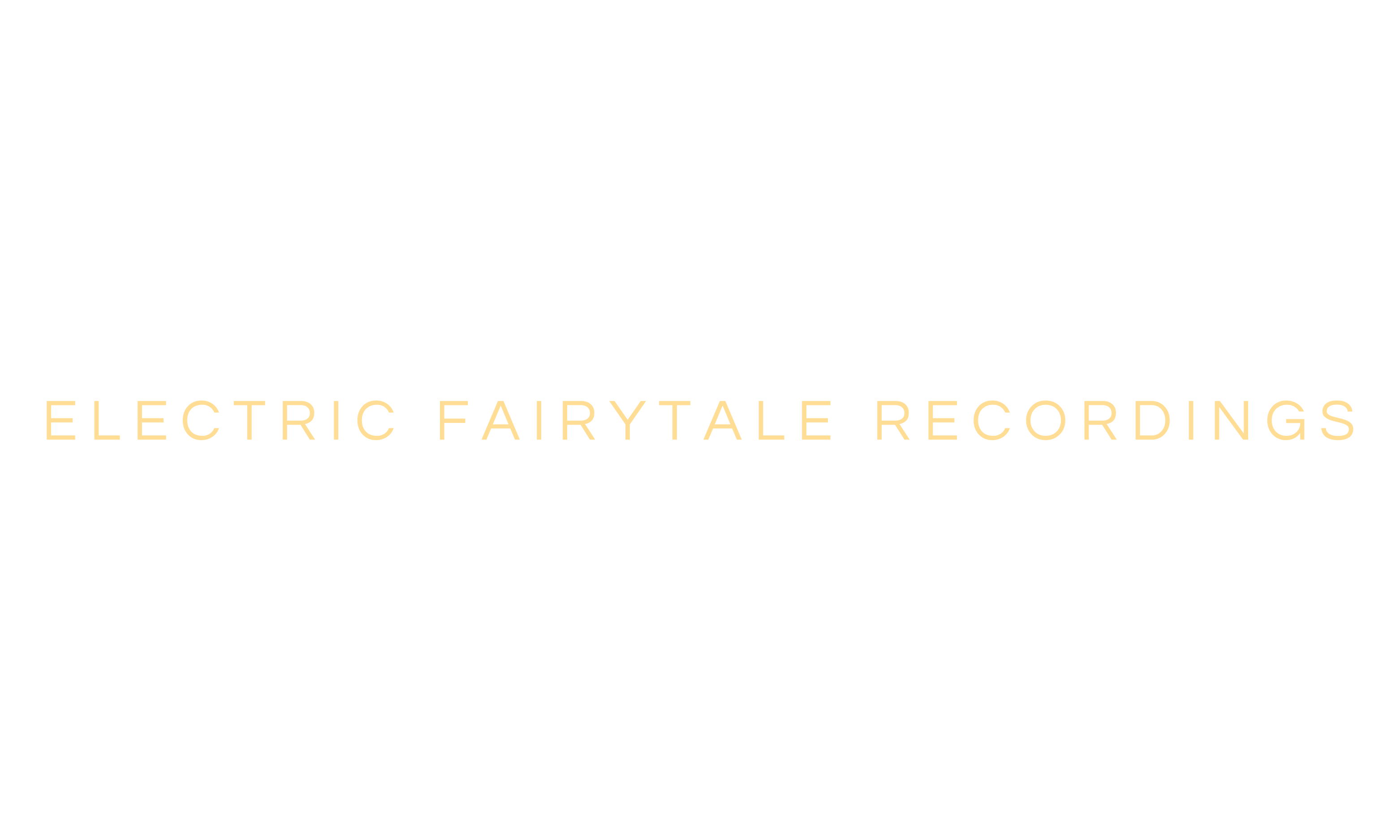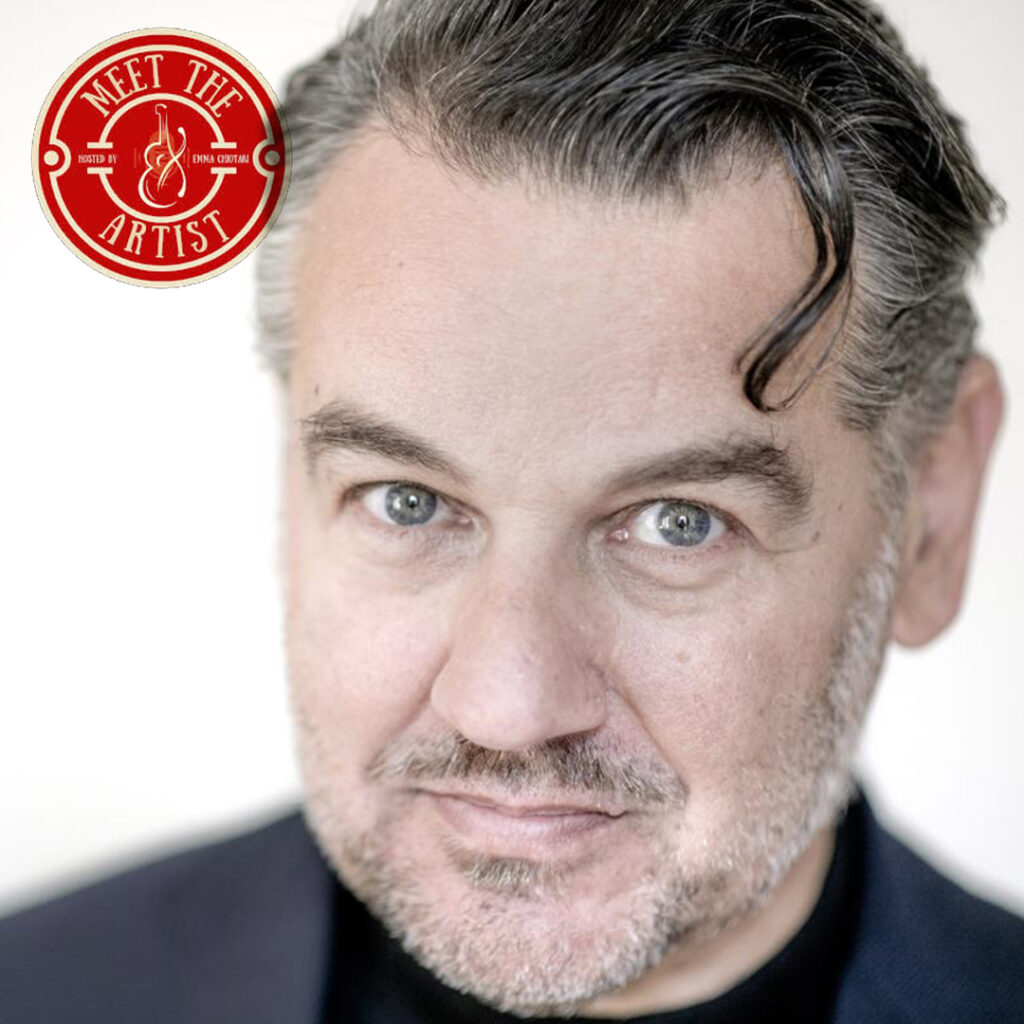Meet The Artist interview with Stephen Emmer.
MTA: Who or what are the most significant influences on your musical life and career as a composer?
Thank you for asking. i guess my late mother’s career as a ballet dancer and teacher. She introduced me very early on to music that in a ‘normal’ household probably wouldn’t be listening – music from people like The Modern Jazz Quartet, Ligeti, Santana, Villa Lobos, Baden Powell, Ravi Shankar, Isaac Hayes, Stravinsky, Balinese Gamelan music, and the list goes on, to which she gave her lessons with in the 1960s and 70s.
Eclectic avant la lettre I’d say. Through this musical diet I always favoured instrumental music a little more and naturally focused, and was baffled, on the more harmonic side of things in music. Later on, as a professional composer, I learned about how to best break rules by having the chance to study and comprehend them through practising them again and again by making music for media where those rules are very well and strictly kept. Let’s name this a paid-for study of decades in fact….
It’s here that I also learned about the psychology behind about how the human mind perceives, interprets and appreciates certain music (or not) by the use of certain harmonies, chords, modalities, rhythms, instruments etc., plus that a good cliche is not always despicable in certain contexts where it is juxtaposed or other. Right now, as I’m older I sympathise more with melodists then ever before, yet the composition accompanying it should not be repetitive in any way: let’s say too much emphasis on compositional choices, such as only pulse driven or with standard chords, shapes or structures.
MTA: What have been the greatest challenges of your career so far?
I guess each one of us must have had these. The question is if your resilience will be big enough to cope and when you’re lucky be able to overcome those during your journey. In my case I can mention a few challenges here: as I started with music, I guess when I was around 13 years old, I soon found out that I couldn’t sing. I hated my own voice so I hastily turned to expressing myself instrumentally and this way could, on an acceptable level, continue with and in music.
Later on I felt hindered by increasings problems with my hearing where I first developed tinnitus, then noticed that the hearing in my left ear got worse and worse to the point that I lost all hearing there and had to accept that I became partially deaf. Lastly followed by vertigo through which for a certain period in my life I could no longer compose, create or consume music until I found a way to pick up on it again by making different music choices than before that and try to create new beauty out of this new setback and, if you wish, handicap. By doing this I was enormously surprised about what I found out because of this: it made me enjoy music even more and I felt more in my musical place than before the setbacks….
MTA: What are the special challenges/pleasures of working on a commissioned piece?
The challenges can become pleasures when you discover the technique of flip thinking. In this case, I started to appreciate the musical limitations of a commissioned piece by turning them in to a challenge, and when that succeeds it can give you pleasure – like solving a sudoku puzzle.
MTA: What are the special challenges/pleasures of working with particular musicians, singers, ensembles or orchestras?
Challenges here almost of a logistical nature – the preparations, the coordination of it all, the people’s management requirements… The pleasures are many. For one, I love the moment when an interpreter of your music can through his or her unique talent and craftsmanship, lift your, theoretically created music to much greater heights by adding valuable expression, great technique and surprisingly great empathy with the work of its maker.
MTA: Of which works are you most proud?
I think first and foremost, and you hear this more often from other composers, not the most popular or best know works per se… I also think the same of my own work as I do from works by others: I treasure and cherish certain, unspecified mostly, moments in music and can only appreciate those being there, has been enabled by the presence of the those sections I respect but don’t necessarily speak to my heart. So it’s moments in music that are to me the beauty and the comfort.
 In my own work I hear these moments happening usually in transitional moments where the listener is taken on an unexpected side journey, only later to return to the musical main road of the given piece. For example, in the first piece of my orchestral album Mt Mundane, Belvedere’s Exotic Garden, which is a musical tribute to the beauty of Maurice Ravel’s beautiful garden, full of very diverse oriental plants, flowers and trees, which to my imagination stood for the same aesthetic as his colourful music. But also the title piece of my album called HomeGround where I feel the same is happening, yet this time embedded in a more chamber pop musical setting. Also I like moments on my album Maison Melody for piano and string quartet, where I tried to translate in to music the melancholy of having to stay in during Covid, and on my forthcoming album called Asymmetrical Dot (out in January 2026) where I fuse several music idioms such as contemporary chamber music, jazz noir and electronic music design into one.
In my own work I hear these moments happening usually in transitional moments where the listener is taken on an unexpected side journey, only later to return to the musical main road of the given piece. For example, in the first piece of my orchestral album Mt Mundane, Belvedere’s Exotic Garden, which is a musical tribute to the beauty of Maurice Ravel’s beautiful garden, full of very diverse oriental plants, flowers and trees, which to my imagination stood for the same aesthetic as his colourful music. But also the title piece of my album called HomeGround where I feel the same is happening, yet this time embedded in a more chamber pop musical setting. Also I like moments on my album Maison Melody for piano and string quartet, where I tried to translate in to music the melancholy of having to stay in during Covid, and on my forthcoming album called Asymmetrical Dot (out in January 2026) where I fuse several music idioms such as contemporary chamber music, jazz noir and electronic music design into one.
MTA: How would you characterise your compositional language?
Eclectic, genre-defying, always striving to appeal on an emotional and spiritual level to listeners rather than on an academical level. The music itself is the result of what I told you here above, where, over the years, I have discovered my own musical taste and preferences, and to my delight have listeners telling me that they recognise what I created as being typically from me; in other words that I seem to have developed my kind of own language, my own musical aesthetic over the years, regardless of in which idiom I have chosen to work for a certain project, and that it always touches them, which are the biggest two compliments you can be given, I suppose, as a composer.
MTA: How do you work?
I always start with a humongous amount of research first. I want to forensically deep-dive in to the new musical idiom i want to work in and until deep in the night and or weekends I learn everything there is to know about it in full. Next, I feel like improvising a little to get myself acquainted with the new requirements for, say, the choice of instruments, the conceptual idea behind a new project and so on. Then comes the more spiritual side of things, I guess, where I feel you should allow yourself to get into a state of consciousness where inspiration becomes accessible, rid yourself of all daily clutter and information overkill, chatter and social engagements and obligations, and then I usually start, traditionally so, playing on a piano and hearing in my head the colours of orchestration and instrumentation. I do all in one: composing, arranging, performing, engineering and producing. My sketches are almost never bare sketches but fully developed renditions of what is to become.
MTA: As a musician, what is your definition of success?
Hemingway rightly said, “don’t work for applause, work for yourself”, and that’s a tough lesson for most of us… I do like feedback, however, and noticed that I am especially happy when I get feedback from peers, i.e. the ones that I admire, that is. But I also love it when somewhere in the world sends me an email saying that he or she has felt through listening to my music to be more able to overcome grief by climbing a mountain in the Alps while listening to it. To me that’s very gratifying. But do I want to be a global popstar? No, life has become too short for that now anyway and I guess my musical taste is not very mainstream, yet has enough other things to offer.
MTA: What advice would you give to young/aspiring composers?
The truth is in the middle here I guess: don’t become a ‘Jack of all trades and Master of none’, but DO learn some tricks from the ones who are and then quickly go your own way!
MTA: What do you feel needs to be done to grow classical music’s audiences?
I feel there lies a huge task plus opportunity for the music industry itself by changing a few things:
Labels: don’t select new music by social media metadata
Bookers of prestigious venues: open up your gates for far more music outside the so-called Golden Repertoire (i.e Mozart, Beethoven, Haydn, etc.)
Agents: don’t ‘sell’ your artists with an emphasis on the story behind their work only
Media: don’t eliminate your classical music reviews on the arts section pages or tv + radio programmes
And artists themselves should aim far more to grassroots type of live performances where other kinds of audiences await you, and stream those live on the internet, and seek alliances with, say, film directors, writers, etc., where you can.
MTA: What’s the one thing in the music industry we’re not talking about but you think we should be?
This is perfectly in line with what I’ve just said above with the last question.
MTA: What next – where would you like tob e in 10 years?
Healthy and able to try and create more beauty on earth while I still can.
MTA: What is your idea of perfect happiness?
Too big a question I’m afraid. What I DO like enormously, though, is the moment when a plan comes together, in whichever shape or form
MTA: What is your most treasured possession?
My 1960s Bluthner mini grand piano.
MTA: What do you enjoy doing most?
Seriously: composing
MTA: What is your present state of mind?
Eager to get on, as at the moment I’m working on two new projects at the same time. More later….
[Meet The Artist – The Cross-Eyed Pianist – 7 November 2025]

